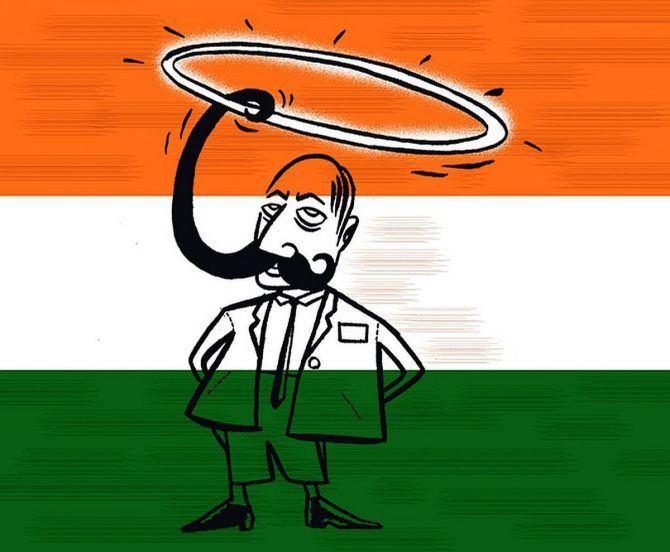Despite taking a hit on profitability amid the pandemic, companies with strong balance sheets are gaining market share because of consolidation in their respective sectors.

Large companies with strong balance sheets may gain market share in FY22 in the aftermath of the Covid-19 pandemic.
Conversely, highly leveraged and weak firms may come under pressure to exit or restructure their businesses.
Despite taking a hit on profitability amid the pandemic, companies with strong balance sheets are gaining market share because of consolidation in their respective sectors, says a research note by BNP Paribas Mutual Fund.
Further, the tension around Chinese imports seems to be hurting several unorganised players, which used to be competitive because of cheap Chinese goods.
“In an era where growth is scarce, we believe such polarisation and divergence may persist until earnings see broad-based recovery.
"In this scenario, we believe large-cap leadership companies will continue to deliver superior performance and gain market share,” said Karthikraj Lakshmanan, senior fund manager, BNP Paribas MF.
The asset manager is betting on companies with stronger balance sheets which offer products and services that can create customer delight and better market access, and says it is better to avoid companies with high leverage.
Indian equities have seen market polarisation since late 2017 where top 10 to 15 stocks have driven market gains, even as the broader market underperformed. The data corroborates this.
The equal-weighted Nifty index has largely performed in line with the Nifty50 index from August 2005 to the beginning of 2018, with several periods of outperformance.
The trend has since changed with the former underperforming the latter significantly.
An equal-weighted index outperforming the main index is generally perceived to be healthy, say analysts.
Such outperformance indicates an ongoing economic expansion that provides an opportunity for smaller firms to grow and investors to diversify their portfolios.
It also means firms with new or disruptive business models are gaining prominence and challenging the leaders. Investors have become more discerning of the companies they were investing in the aftermath of the global financial crisis, and thus, leaders of the index changed, and those have only become bigger since then.
Since 2009, the top 100 companies by market cap have consistently contributed a large proportion to the market earnings, according to BNP Paribas.
It also observed the performance of Nifty50 has been marginally behind that of mid- and small-cap indices in the ‘up market’ or ‘recovery phase’; mid- and small-cap indices tend to give up the outperformance in the ‘down market’ or ‘correction phase’.
“The primary reason could be a disappointment in earnings delivery.
"The inability of the broad market to deliver earnings growth skewed the flow of money towards a few large-cap stocks,” said Lakshmanan.












 © 2025
© 2025